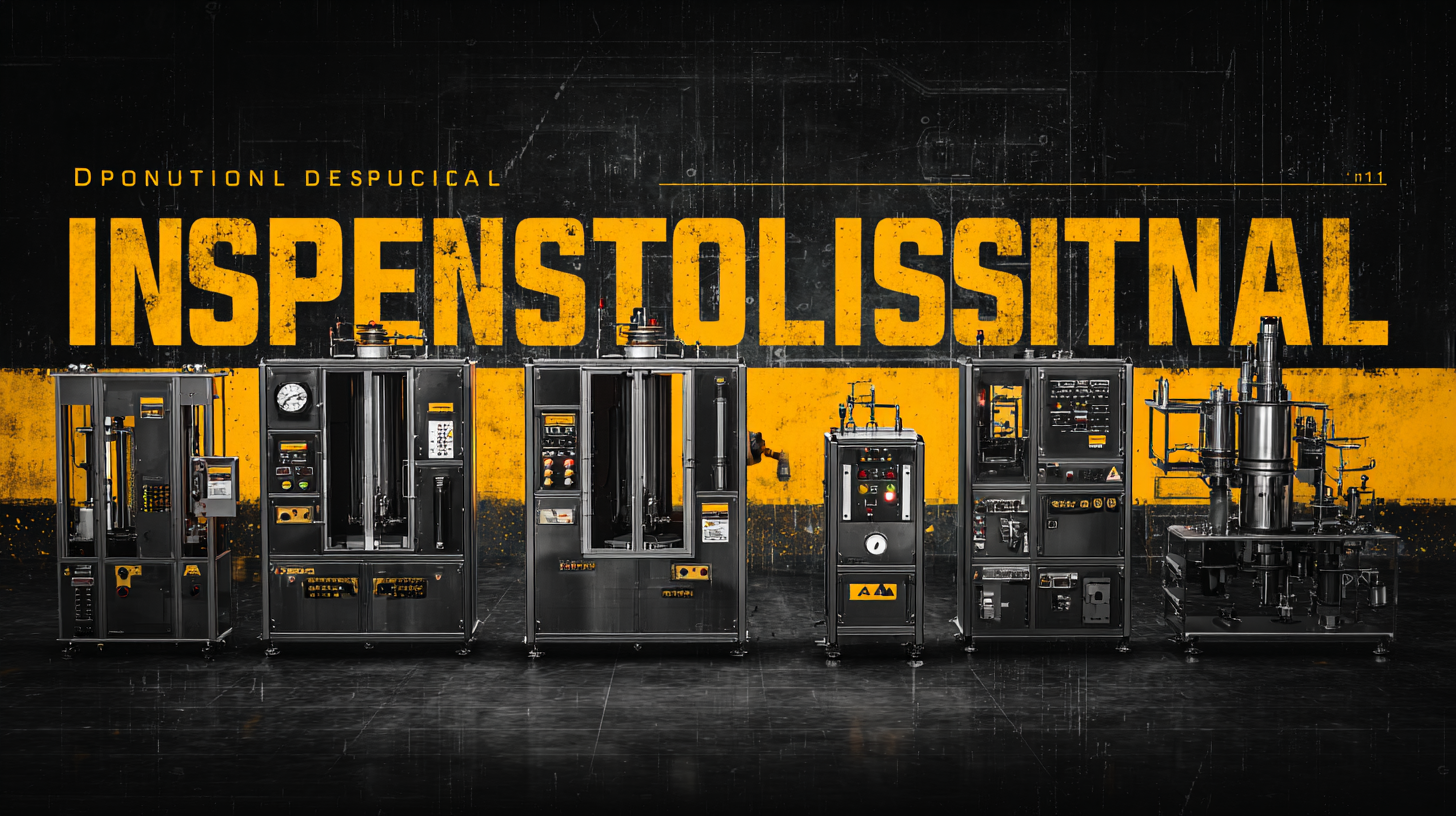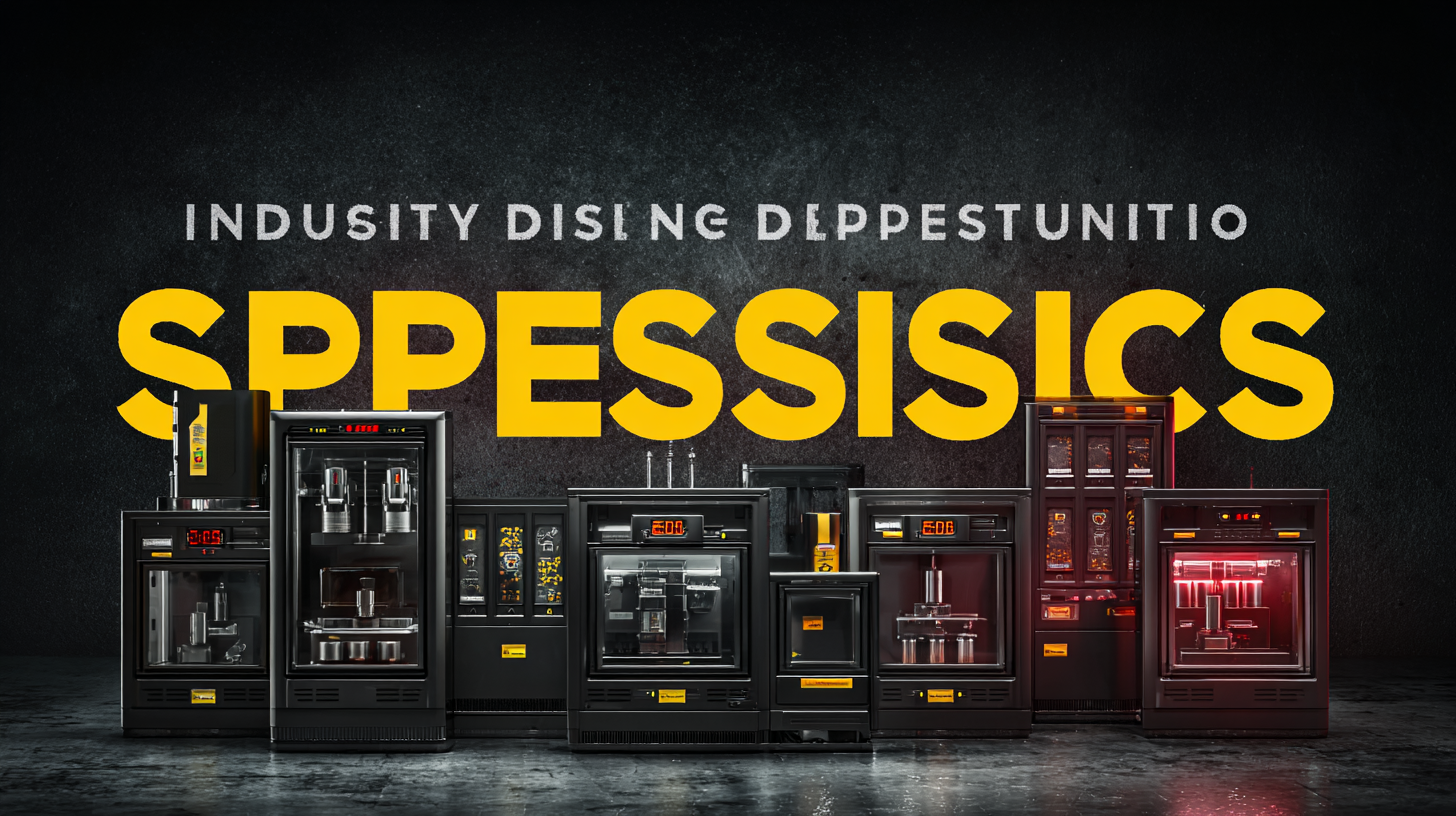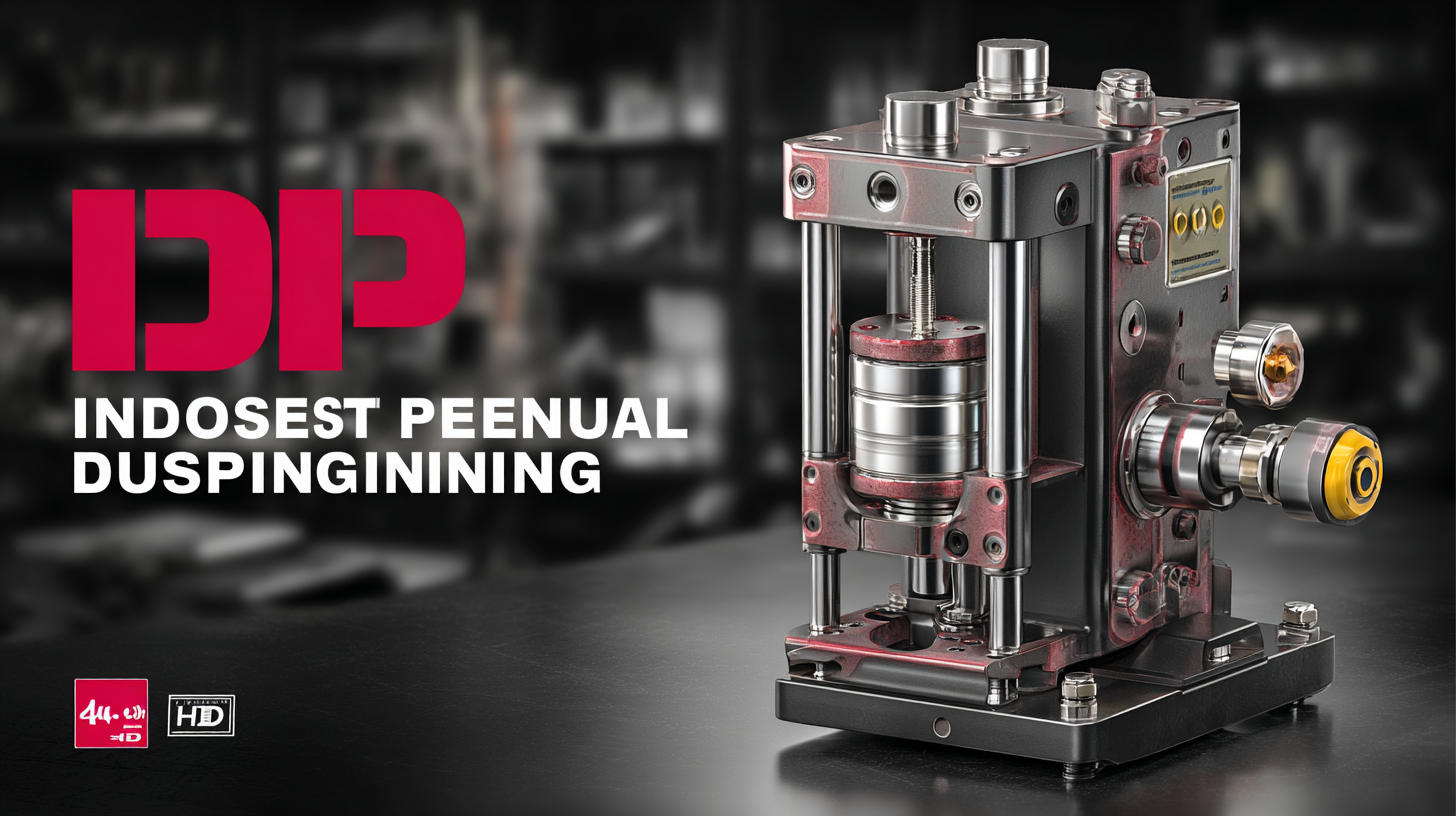Automated Dispensing Robot Videos
A World of Robotic Dispensing and Assembly SolutionsUnlocking Precision: The Best Industrial Dispensing Equipment Specifications You Need to Know
In the ever-evolving landscape of manufacturing and production, precision plays a critical role in ensuring quality and efficiency. At the heart of this precision lies Industrial Dispensing Equipment, a vital component that dictates how substances are applied in various processes—from adhesives to coatings and even food production. Understanding the specifications and types of Industrial Dispensing Equipment is essential for engineers and production managers seeking to optimize workflows and minimize waste. This blog will delve into the key specifications you need to be aware of, the various types available in the market, and how these innovative tools can significantly enhance operational performance. Join us as we unlock the secrets to selecting the right equipment that not only meets your operational demands but also advances your production capabilities to new heights.

Identifying Key Specifications for Industrial Dispensing Equipment
When selecting industrial dispensing equipment, understanding key specifications is essential for ensuring optimal performance and reliability. The specifications to consider include flow rate, viscosity handling capabilities, and precision measurement technologies. A higher flow rate allows for faster production, while the equipment's ability to handle varying viscosities ensures versatility across different applications. Moreover, incorporating advanced precision measurement tools can significantly reduce waste and improve product consistency, which is vital, especially in industries where quality control is paramount.
Additionally, as the pharmaceutical and food packaging industries evolve with the integration of artificial intelligence, the need for precise and adaptable dispensing systems becomes even more pronounced. For instance, AI technologies can enhance the accuracy of formulations and streamline manufacturing processes, which in turn raises expectations for dispensing equipment specifications. By focusing on these critical specifications, companies can better address both current challenges and future innovations, paving the way for increased efficiency and safety in their production processes.
Unlocking Precision: Key Specifications for Industrial Dispensing Equipment
This chart illustrates the comparison of key specifications in various industrial dispensing equipment, focusing on accuracy, flow rate, and viscosity compatibility.
Assessing Supplier Credentials: What to Look For
When selecting industrial dispensing equipment, assessing supplier credentials is paramount to ensuring you make the right investment. Start by examining the supplier’s experience in the industry. A supplier with a proven track record in dispensing technology indicates not only reliability but also a deep understanding of specific application requirements. Look for case studies or testimonials that showcase successful implementations, as this can give you confidence in their capabilities and expertise.

Another important factor to consider is certifications and compliance with industry standards. Suppliers that adhere to recognized regulations indicate their commitment to quality and safety. Certifications such as ISO 9001 can signal a supplier’s dedication to continuous improvement and customer satisfaction. Additionally, inquire about their support and service offerings. A supplier that offers robust after-sales support, training programs, and technical assistance can be invaluable, especially if you encounter challenges in equipment operations. By thoroughly evaluating these credentials, you can ensure that your chosen supplier will meet your dispensing needs effectively.
Top Features of High-Quality Dispensing Systems
When selecting industrial dispensing equipment, understanding the top features of high-quality dispensing systems is crucial. Precision is one of the leading attributes, with studies revealing that systems with better accuracy reduce product waste by up to 30%. This not only increases profitability but also decreases the environmental impact of manufacturing processes. Advanced metering and mixing technologies can ensure consistent results, accommodating various materials, which is essential for industries ranging from automotive to healthcare.
Another critical aspect is versatility. High-quality dispensing systems can handle a wide range of viscosities and materials, including adhesives, sealants, and coatings. According to the latest market analyses, systems equipped with adaptive technology can accommodate over 80% of the common materials used in production lines today. Furthermore, ease of operation and maintenance stands as a key feature; systems that offer intuitive interfaces and quick-change mechanisms allow for faster setup and minimal downtime, thereby improving overall efficiency in high-demand environments.
Evaluating the Reliability of Your Industrial Equipment Provider
When it comes to selecting industrial dispensing equipment, reliability is paramount. According to a recent report by the Industrial Equipment Insights (2023), nearly 40% of production downtime is attributed to equipment failure. This statistic underscores the importance of evaluating potential suppliers, ensuring they not only provide high-quality machinery but also offer steadfast support and service. A reliable provider should have robust maintenance programs and readily available replacement parts to address any issues that may arise swiftly.

Moreover, performance metrics can serve as a benchmark when assessing an equipment provider's reliability. For instance, the Reliable Equipment Framework (2023) highlights that top-performing companies maintain an uptime rate of over 95%. When comparing suppliers, businesses should consider factors such as customer reviews, warranty details, and the provider’s history in the industry. Statistical data demonstrates that companies with high customer satisfaction rates are 30% more likely to deliver on their service promises, further emphasizing the necessity of thorough evaluation in the selection process.
Building Strong Supplier Relationships for Long-term Success
Building strong supplier relationships is essential for long-term success in the industrial dispensing equipment sector. A reliable supplier can significantly impact the efficiency and precision of your operations. To cultivate these relationships, open communication is crucial. Regularly discussing your needs, challenges, and feedback fosters trust and ensures that both parties are aligned in their goals.
Tip 1: Schedule regular check-ins with your suppliers to discuss performance, product updates, and any concerns. This proactive approach helps in addressing issues before they escalate and shows that you value their partnership.
Moreover, understanding your supplier's capabilities can lead to better collaboration. When you are familiar with their strengths, you can leverage their expertise to improve your own processes. Building a partnership based on mutual understanding and respect not only enhances your operational efficiency but also drives innovation in product development.
Tip 2: Participate in joint training sessions or workshops with your suppliers to enhance mutual understanding of technologies and processes. This shared knowledge can lead to innovative solutions that benefit both parties.
In a competitive industry, the value of a strong supplier relationship cannot be overstated. By prioritizing collaboration and communication, you set the foundation for lasting success.
